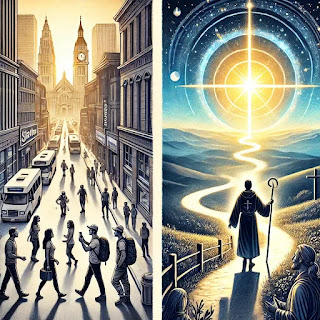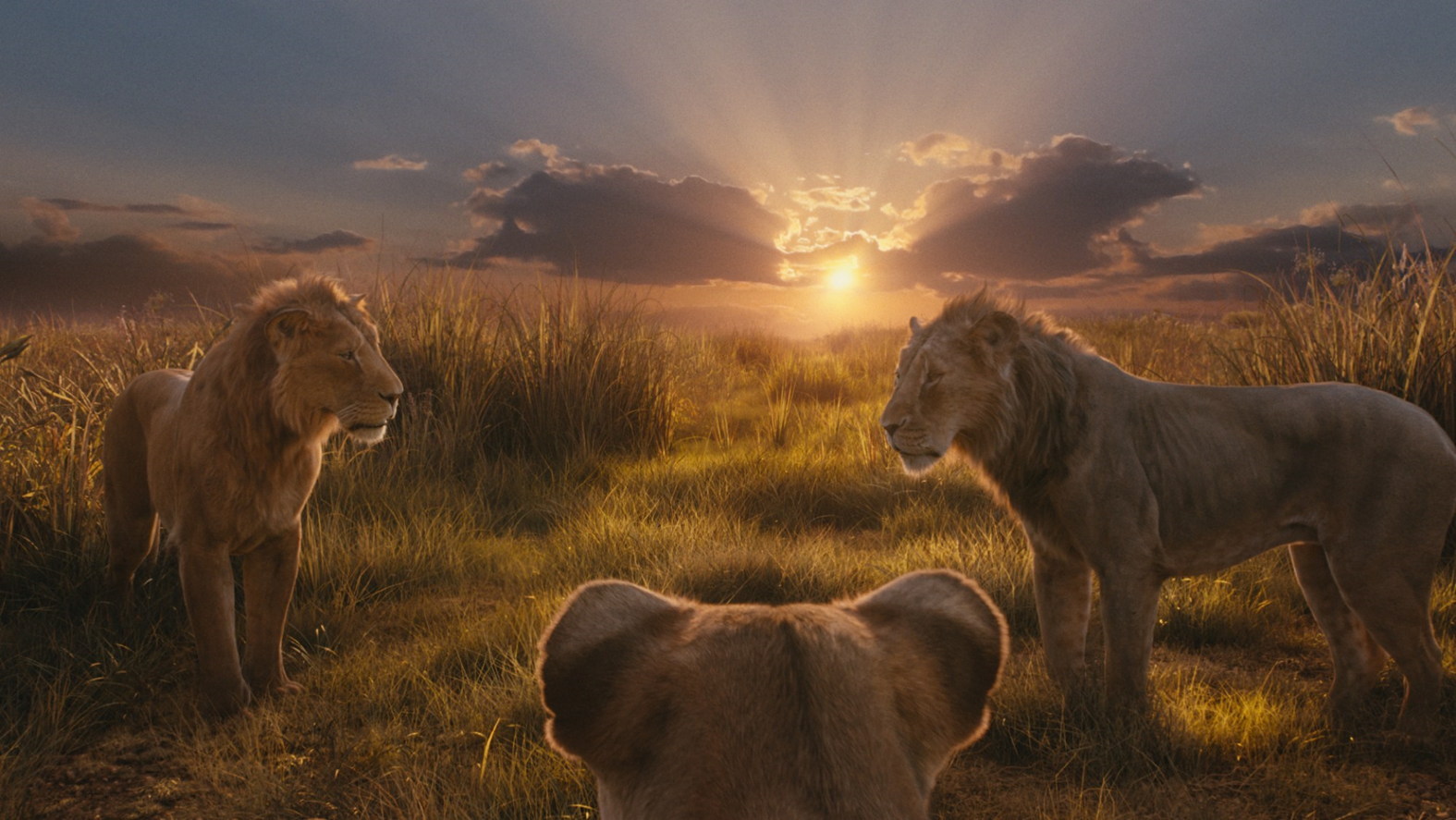"Sightseeing?" or "Pilgrimage?"
"Sightseeing?” Or “Pilgrimage?"
Epiphany Sunday
1/5/25 Hodgdon
UMC
Life is a Pilgrimage!
The year 2024
quietly said goodbye, and 2025 has already walked five days with me on this
journey of life. I didn’t push time away, nor did I invite the new year to
come. Yet here we are, walking together. Life is like that. Many things happen
without us asking. Sometimes, unexpected and unwelcome events fall into our
lives. That’s why life is not a sightseeing trip but a pilgrimage. It’s
not about passing by and glancing at things with our eyes or walking according
to our own plans. Instead, it’s about walking along the path given to us, using
our feet to move forward. It’s not about walking where we want to go, but
walking where God leads us. On this journey, we meet people and situations that
help us see ourselves more clearly. We learn to walk with others and to feel
awe for someone greater than us. [1]
Abraham’s Pilgrimage
God called
Abraham on a pilgrimage to make him into someone new. He left his comfortable
life behind and walked a path where nothing was certain. The road from Ur to
Haran was smooth. But the road from Haran to Canaan was through the
harsh wilderness. Abraham didn’t choose the path; he followed God’s leading.
Along the way, he learned who he was, who his nephew Lot was, and how to live
with others. Most of all, he grew in awe of God.
Abraham’s
pilgrimage continued through his descendants—Isaac and Jacob. They lived in
tents, always moving, never settling. They waited for a city with strong
foundations, a city built by God.
"By
faith, he lived in the promised land as a foreigner, dwelling in tents along
with Isaac and Jacob, who were heirs of the same promise. For he was looking
forward to the city with foundations, whose architect and builder is God... All
of them died in faith, not having received the promises, but having seen them
from afar and embraced them. They confessed that they were strangers and
pilgrims on this earth." (Hebrews 11:9, 10, 13)
In Leviticus 25:23, God told Moses,
"You are foreigners and travelers with Me." King David also said in Psalm
39:12, "I am a foreigner with You, a guest, like all my
ancestors."
Even in the
New Testament, God’s people are called pilgrims on this earth. Hebrews
11:14-16 reminds us that we are on a journey toward our heavenly home, the
New Jerusalem.
The Pilgrimage of the Wise Men
Baby Jesus
came into this world with no place to stay. He showed us how to live as
pilgrims. The wise men from the East also went on a pilgrimage to see
Him.
In Matthew
2:1-12, the wise men left their familiar homes and traveled to a strange
land. The word “Magi” comes from the Greek word Magoi, meaning
astrologers, scholars, or advisors. The Magi likely came from Babylon or
Persia. During the time of Daniel, some Israelites lived in exile
there. Daniel became the chief of the wise men and prophesied about the
coming Messiah (Daniel 9:24-27). The Magi may have remembered these
prophecies. They also knew the prophecy in Numbers 24:17: "A star
will come out of Jacob; a scepter will rise out of Israel." This prophecy
could explain why they were looking for a special star.
There are
historical records of miraculous signs in the sky around that time. In 7
B.C., Jupiter and Saturn aligned. In 5 B.C., Chinese records
mention a supernova. The Magi believed in God’s promises. They followed
the light of the star and traveled to meet the baby King, bringing their best
gifts.
Herod’s Reaction
In contrast, King
Herod had a very different response. He didn’t recognize that he needed a Messiah.
When he heard about the baby King from the wise men, he became afraid and
angry. Instead of following the light, he wanted to destroy it. Herod
refused to give up control. He wanted to be the ruler of his life and his
kingdom. His refusal to welcome the Messiah made him even more unstable and
anxious. When I think about Herod, I understand his fear. When I try to control
everything in my life, I also feel anxious and incomplete.
The Pilgrim’s Questions
Herod’s story
makes me ask important questions:
- Who
am I?
- Who
are they?
- Who
is the One greater than us?
- Where
are we going?
These are the questions of a pilgrim.
Saint
Augustine wrote
about these questions in his famous book Confessions. Even if we live in
the same place or work in the same job all our lives, we can still be pilgrims
if we dare to leave our old selves and seek the truth. A
pilgrim is someone who recognizes their own biases, stubbornness, and
narrow-mindedness. They long to break free and find the truth. They seek to
walk toward the light of God.
The Creation Story
Before we
ask, "Who am I?" let’s ask, "Who was Adam?"
God created
the world by the Word. He made light, water, and land, and filled them with the
sun, moon, stars, birds, fish, and animals. Finally, He created Adam
from dust. The name Adam comes from the Hebrew word "Adamah
(אדמה )" which means "earth" or "dust."
But this dust
wasn’t ordinary. It carried God’s breath and God’s image.
However, sin entered this holy dust, making humans anxious and incomplete.
A poet once said, "Add anxiety to dust, and you get humans. Take anxiety away, and you get dust." Our lives are filled with restlessness, but God invites us to find rest in Him.
The Word and the Light
How do we
find rest in God? How can we get away from our anxiety and dissatisfaction with our incompetence?
How can we get back dust filled with God’s breath and God’s image?
In John 1:1-5, we learn that the
Word was with God, and the Word was God. Through this Word, all
things were made. The Word is life, and this life is the light of all
people. The light shines in the darkness, and the darkness cannot
overcome it.
God created
everything by His Word. His Word is hidden in all creation. That’s why we feel
peace when we spend time in nature. We see God’s greatness and our own
weakness.
Most
importantly, God’s Word came to earth. Jesus became the Word
made flesh. He died and rose again to become our light and life.
Following the Light
"You are My child." – 1 John 3:1 ("See what
great love the Father has lavished on us, that we should be called children of
God!")
"I created you with a purpose." – Jeremiah 29:11 ("For I
know the plans I have for you, declares the Lord, plans for welfare and not for
evil, to give you a future and a hope.")
Listening
to, reading, meditating on, and memorizing God's Word is how I overcome anxiety and enter
into God's rest. John Wesley, who recorded his actions every 15 minutes
and published his journals into books every 4 to 5 years, engraved God's Word
on the soil of his heart through spiritual journaling. When our own words, the
devil's words, and people's words decrease, and God's Word fills us, returning
to how humanity was originally created, we can experience true rest
The Lion King, Mufasa
Our family
loves The Lion King. We’ve watched it so many times that we’ve lost
count. For my daughter’s birthday, we watched The Lion King 2 on Monday
and went to see Mufasa at the theater on Friday. Apologies to those who
haven’t seen the movie yet, but let me briefly share the storyline.
Young Mufasa,
who suddenly lost his parents in a flood, became a wanderer, a pilgrim. As he
walks the path of pilgrimage, he learns who he is and how to live with others.
He remembers his mother’s words from his childhood — about the Millele that
would lead him to a world of rest. Step by step, he journeys toward that place.
Even when he faces enemies and the dangers of death, and even when he is betrayed
by someone he loves the most, he holds on to his mother’s words. In the
end, he enters the land of rest, reunites with his beloved mother, finds new
love, and becomes the Lion King.
Our Pilgrimage
Looking back on my life, I realize it has been a journey of
transformation — from being a tourist who simply goes sightseeing to becoming a
pilgrim walking the path of faith. Like King Herod, I once lived trying to
solve everything by my own plans, wisdom, and strength. Even now, I continue to
wrestle with that, but little by little, I am learning to invite God to be the
Lord of my life and to walk the path He has set before me.
When I moved to America, the barriers of language and culture
slowly taught me to step down from the throne of my life. Raising five children
helped me reflect on my own wounds, and holding my hurting children in my arms,
I wept and confessed that I am not their owner — God is.
Serving three churches reminded me that the church doesn’t
belong to the pastor or the members, but only to Jesus. And through two
surgeries last year, I was once again led to confess that God is the owner of
my health, my lifespan, and my entire life.
Is your life a sightseeing trip or a pilgrimage? In what
areas do you still believe you can control and plan everything on your own?
Would you walk this pilgrimage toward rest, leaving behind your anxiety and
imperfection, alongside the Lord who came as the Light of the Word, and with
those who live with Him in their hearts?
May we, in 2025, become like these people who filled their
lives with the light of God’s Word.
Amen.










Comments
Post a Comment